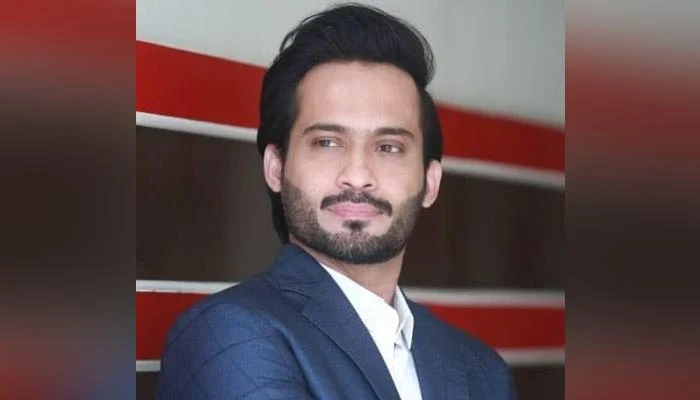- FIA booked Zaka for allegedly maintaining two accounts for cryptocurrency trading.
- FIA prosecutor directed to submit report regarding execution of warrant.
- Court adjourns hearing till January 5, 2022.
A local court issued a non-bailable arrest warrant for Waqar Zaka — who is a television host and social media activist — in a case pertaining to suspicious Rs173 million cryptocurrency-related transactions, The News reported Friday.
Earlier this year in January, the Federal Investigation Agency’s (FIA) cybercrime circle had booked Zaka for allegedly maintaining two accounts for the trading of cryptocurrencies/virtual assets.
The case was taken up by Judicial Magistrate (East) Mukesh Kumar on Thursday against Zaka, who is spearheading a campaign for virtual currencies to be declared legal tender in Pakistan.
The magistrate directed the FIA prosecutor to submit a report regarding the execution of the warrant on the next date and adjourned the hearing until January 5, 2023.
The case
The case was lodged on the complaint of the state through Shehryar Ahmed Khan, assistant director of the FIA cybercrime circle, who stated that an inquiry was launched against Zaka upon receipt of a source report from the Financial Monitoring Unit (FMU) in August 2020.
He said the record collected by the FIA from the relevant banks revealed that during the last three years, transactions of over Rs173 million were observed in his bank accounts, including an aggregate credit of Rs86.1 million and debt of Rs87.1 million.
The statement of the accounts revealed that funds were being credited into these accounts through foreign remittances (interbank fund transfer) and clearing of cheques, which were subsequently debited through internal transfer to accounts of his family members, he added.
The FIA stated that Zaka used social media for charity purposes and international funding, receiving Rs6.8 million, which was withdrawn through the pay order and interbank fund transfer.
“The multiple news, blogs and videos were found on a public database which transpires involvement of accused Waqar Zaka into cryptocurrency/virtual assets,” it claimed. “During the enquiry, Bitcoin/cryptocurrency-related posts were found on his Twitter account, the accused also promotes cryptocurrency like Bitcoin through YouTube channels.”
The agency said the State Bank of Pakistan (SBP) did not recognise virtual assets as a legal tender to store and transfer value, adding that the central bank had also issued a caution regarding the risk of trade in cryptocurrencies and prohibited the public from trading in any such currencies.
It said that after examining the report, secured documents like copies of the bank records and institutions and oral evidence, it had been substantiated that the accused, in violation of banking rules and regulations and prescribed law of the country, fraudulently and dishonestly committed the offence of virtual assets trading and facilitated the use of virtual assets for transferring funds and generating funds.
The FIA maintained that after the inquiry was initiated and the accused was summoned, he launched false propaganda against the institutions of the state and was found involved in illegal activities through social media platforms such as Facebook and Twitter by putting up objectionable material against the institutions, threats to government officials and provoking the public against the state.
Zaka was allegedly found guilty of committing the offences punishable under the Pakistan Electronic Crimes Act, 2016, Pakistan Penal Code, Anti-Money Laundering Act 2020 and Foreign Exchange Regulation Act 1947.


 Latest News3 days ago
Latest News3 days ago
 Latest News3 days ago
Latest News3 days ago
 Entertainment3 days ago
Entertainment3 days ago
 Latest News3 days ago
Latest News3 days ago
 Latest News3 days ago
Latest News3 days ago
 Latest News3 days ago
Latest News3 days ago
 Latest News3 days ago
Latest News3 days ago
 Latest News3 days ago
Latest News3 days ago












